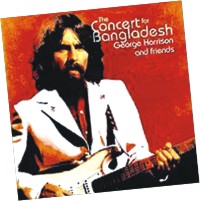| Spotlight
Changes for Good
Sharif Ahmad Shabbir
 EVERYONE is talking about a change. Everybody wants change, a change that will be good. A new government is now in power. Things are starting to change. We are also looking forward to positive changes in ourselves and in our country, something that will benefit us. EVERYONE is talking about a change. Everybody wants change, a change that will be good. A new government is now in power. Things are starting to change. We are also looking forward to positive changes in ourselves and in our country, something that will benefit us.
Firstly, if we want to bring out changes around us, we have to change ourselves from inside. We have to think positively and be optimistic. Only a positive mind can foster a positive change.
In our country, many things need to be changed for good. The political parties should practice fair politics having no student wings, corruption, irregularities and nepotism. Steps should be taken to reduce traffic jam in Dhaka.
Vehicles older than 20 years should be taken off the roads and more double decker buses should be introduced. Trained drivers with valid driving licenses should be allowed to drive and proper implementation should be ensured.
The education system should be changed with more practical learning rather than theoretical learning. The curriculum for learning English in schools should be newly devised following American or British standards.
3G networks must be introduced in the country as soon as possible. High-speed internet services should be made more affordable. Modern audio-visual means should be used in the media to improve standards.
Proper waste management across the country must be ensured and more trees must be planted to save the environment. Laws must be enacted to abolish dowry system during marriages.
A positive change is always good. Now we all need to work together to bring out changes in our country, because positive changes can make our country a better place to live.
(Journalism, Independent University Bangladesh)
Freedom of youth
Rakib Ur Rashid Sikder
BANGLADESH has seen a rapid boom in private universities in the past decade. In addition to providing excellent education with practical degrees suited for the job market, the reputable private universities have been consistently drawing some of the most talented students of our country. However, in spite of all their success in most areas, these universities have deprived their students of a fundamental need An Open Campus.
A university is about freedom; it’s about exploring and meeting people. But unfortunately, in most private universities, the campus environment is not seen as an essential element in learning. Whenever private universities are mentioned, we visualize a modern high-rise building in the heart of Dhaka.
This trend of small one-building (or in some cases one floor) universities cannot continue. A change for the better is needed. And for the good part, a change has indeed started. For some years now, Brac University has been running a beautiful lush-green campus in Savar, in addition to its main building. NSU has recently completed building a huge, open, state-of-the-art campus in Bashundhara for its students and IUB is building its own super campus near the NSU building .
So if more and more private universities can provide a healthy campus life to their students in addition to quality education, we may indeed see revolutionary improvement in the private educational system of our country.
(Oxford International School, Class 12)
Blowing in the wind
Asrar Chowdhury
 IN 1971 Bangladesh was created from one of the most brutal genocides in the history of mankind. In the 266 days of our Liberation War three million people sacrificed their lives to create a ten-letter word Bangladesh. This translates to 7.83 lives per minute. And still Bangladesh stood strong to come out victorious on 16 December 1971. IN 1971 Bangladesh was created from one of the most brutal genocides in the history of mankind. In the 266 days of our Liberation War three million people sacrificed their lives to create a ten-letter word Bangladesh. This translates to 7.83 lives per minute. And still Bangladesh stood strong to come out victorious on 16 December 1971.
1971 therefore defines Bangladesh. And Bangladesh carries on defining 1971.
During those 'dark days' we had friends in the outside world who stood beside us in our cause to free ourselves from the yoke of domination. One such initiative was the Concert for Bangladesh. Two children of Bangladesh, Pandit Ravi Shankar and (The Late) Ustad Ali Akbar Khan approached (The Late) George Harrison of the Beatles to explore the possibility of a concert. If George could give a nod, then this would be the first time music would be used as weapon to fight a war on a global scale.
And so the stage was set at Madison Square Garden of New York for Sunday the first day of August 1971 where the friendly people of the USA extended a warm hand and joined in our struggle for freedom. Bangla Dhun in the grandeur of the Bhatiyali spoke and cried to the rest of the world. The rest of the world responded the way they knew in the Love and Peace that characterised probably the most creative decade in the history of Western music, the 1960s.
The Concert for Bangladesh was influential in creating awareness on what was actually happening in the newly founded State of Bangladesh. It was the first time music made a difference in such a cause. Unfortunately, even after 38 years, as a Nation we still have not said thanks to the organisers of the Concert for Bangladesh. I have personally raised this issue many times before and will continue to do so until the winds change their course.
On the eve of the Third Anniversary of Star Campus, with whom I am honoured to be associated, I pray this campus generation dawns Winds of Change by initiating an effort to 'officially' thank the musicians of Concert for Bangladesh for what they did for us in 1971. Can they do it? Yes they can and they will. 'The answer my friend, is blowing in the wind'!
(The writer is a Faculty in Economics at Jahangirnagar and North South Universities)
Free movement on Dhaka roads
Rabeya Rowshin
 I wish to see a Dhaka where there is no traffic jam. I wish to see a Dhaka where every road and route is well maintained and people follow the laws. The public transportation system will not overflow with passengers. It takes exactly 15 minutes and not 45 minutes to reach a place, which is 15 minutes away. We need to take the advice of experts on traffic control to ensure that thousands of hours in our national life are not wasted. I wish to see a Dhaka where there is no traffic jam. I wish to see a Dhaka where every road and route is well maintained and people follow the laws. The public transportation system will not overflow with passengers. It takes exactly 15 minutes and not 45 minutes to reach a place, which is 15 minutes away. We need to take the advice of experts on traffic control to ensure that thousands of hours in our national life are not wasted.
|

